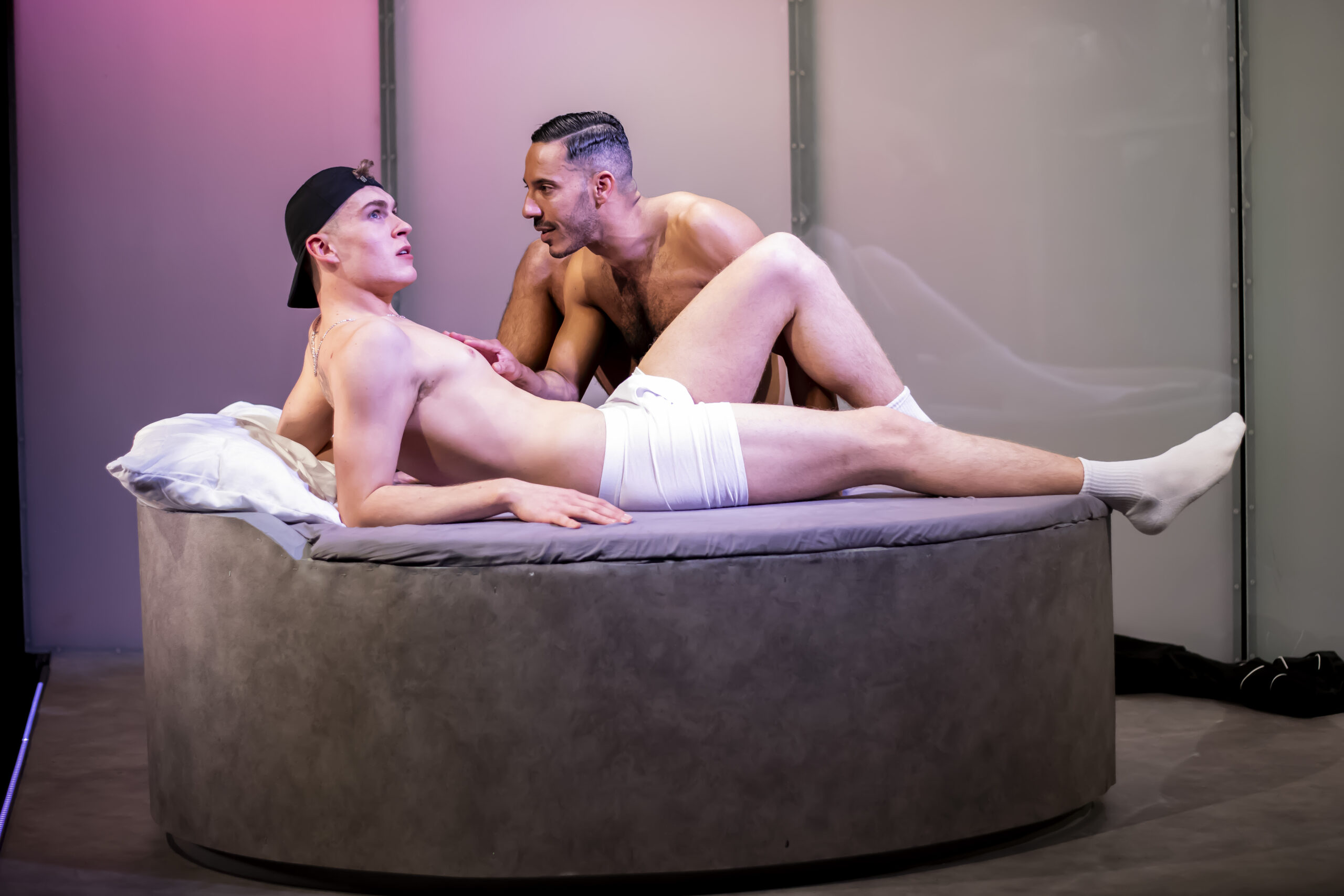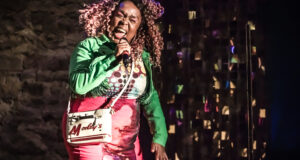Pros: An extraordinary example of immersive theatre done to an uncompromising standard.
Cons: Difficult to follow unless you are a seasoned opera-lover or an Italian speaker. The acting was a little over-emphasised here and there and the headphones did tend to be a little crackly on occasions. Despite the cons this is unmissable, if just for the pure brilliance of it all!
Summary
Rating
Unmissable!
This is probably the most challenging review I have ever had to write. I’ll put it out there: I know very little about opera. In some ways this is a good thing – since one of the aims of Silent Opera (the producers) is to bring the genre to new audiences, reviews written by ‘opera virgins’ like myself are probably in short supply! However, it also makes it challenging because I don’t really know what I’m saying. So that’s my first difficulty. The second difficulty is that despite having its flaws, L’Orfeo was one of those productions where you can truthfully say: ‘I have never experienced anything quite like this before’. Now I’m in a pickle, so I guess I’ll take it one step at a time, judging it more by its virtue as a show, and less by the quality of the voices or music (for which I would be a poor judge).
Monteverdi’s L’Orfeo is regarded as one of the earliest operas ever written. It recounts the well-known Greek mythological tale of Orpheus, a musician so talented that he could charm people, animals and objects with this music, and who descends to hell to retrieve his beloved wife Eurydice (struck by lightning in a freak accident) from the underworld.
Silent Opera’s treatment of this is nothing short of mind-boggling. I hardly even know where to start. The premise of Silent Opera is that, in the style of a silent disco, audience members are given headphones which play much of the score and deliver a ‘soundscape’ to accompany the action on stage. The soloists still perform live, as do some selected instruments. Not being a singer myself, I am always impressed by the talent of opera singers to use their voices as instruments, and this obviously fits in well with the plot of the play, but the master stroke of this production was to stage it in promenade. Of course! If the story follows Orpheus as he goes to hell and back, then why not get the audience to physically follow him into hell?! Like all great ideas, it makes so much sense in hindsight.
And what a promenade it was! I don’t know whether it would be fairer to describe L’Orfeo as an opera or as an art installation. A particular highlight was the depiction of the Styx, a river of memories, by hundreds of glass jars suspended from the ceiling, each containing an everyday object or childhood keepsake. It was a thing of beauty, which you would expect to see in the Tate rather than on stage, and the performers sang beneath this river of memories as the crowds stood around them. Another highlight was the depiction of the underworld itself as a demonic church with pews suspended upside down from the roof, so that the audience feel like they are upside down. The attention to detail in Kat Heath’s design is awe-inspiring. I have never been immersed in a show in quite such vivid, almost creepy detail – especially when everything you hear is governed by the headphones you wear. The show was so immersive that at the end, an audience member decides on the ultimate fate of the protagonist. Powerful stuff.
L’Orfeo is not a perfect show. There were times when the headphones crackled, acting which seemed a little over-emphasized and parts which I must admit I did not understand – although in fairness this was because the opera mysteriously reverted to being sung in Italian while the action was in the underworld. Regardless of this, I am powerless to give anything less than five stars to this show, as it was a completely extraordinary example of immersive promenade theatre – the kind which compensates all the half-hearted examples of promenade you may have witnessed before. Whether you know opera or not, you should see this show, and look out for the work of this blisteringly talented director and her company.
Composer: Claudio Monteverdi
Director: Daisy Evans
Booking Link: http://www.silentopera.co.uk/
Booking Until: 10th February 2013
 Everything Theatre Reviews, interviews and news for theatre lovers, London and beyond
Everything Theatre Reviews, interviews and news for theatre lovers, London and beyond



Excellent review. I know a bit about opera and have seen Orfeo staged several times. Totally agree, this production is unique and well worth the effort of getting to Trinity Wharf.